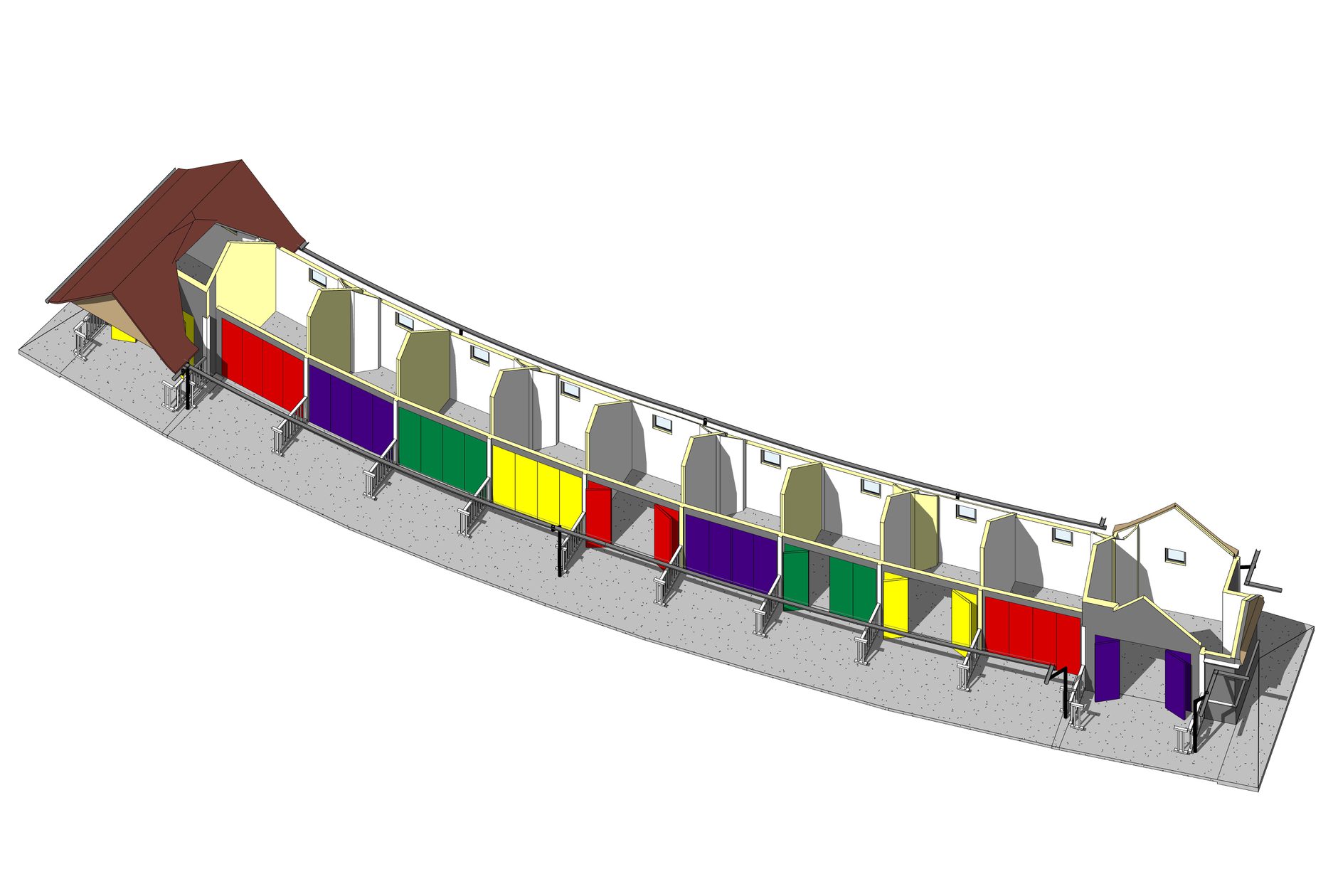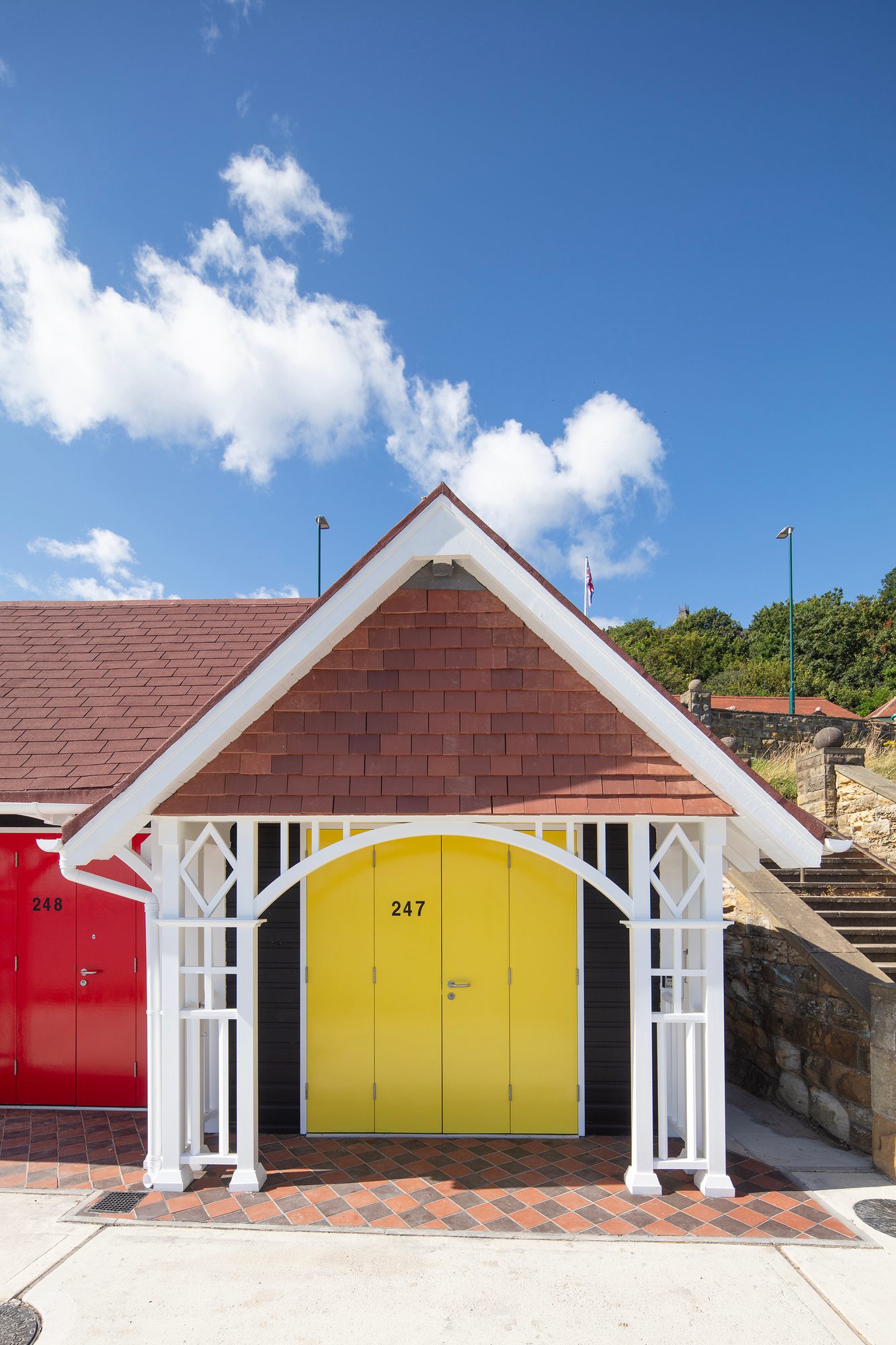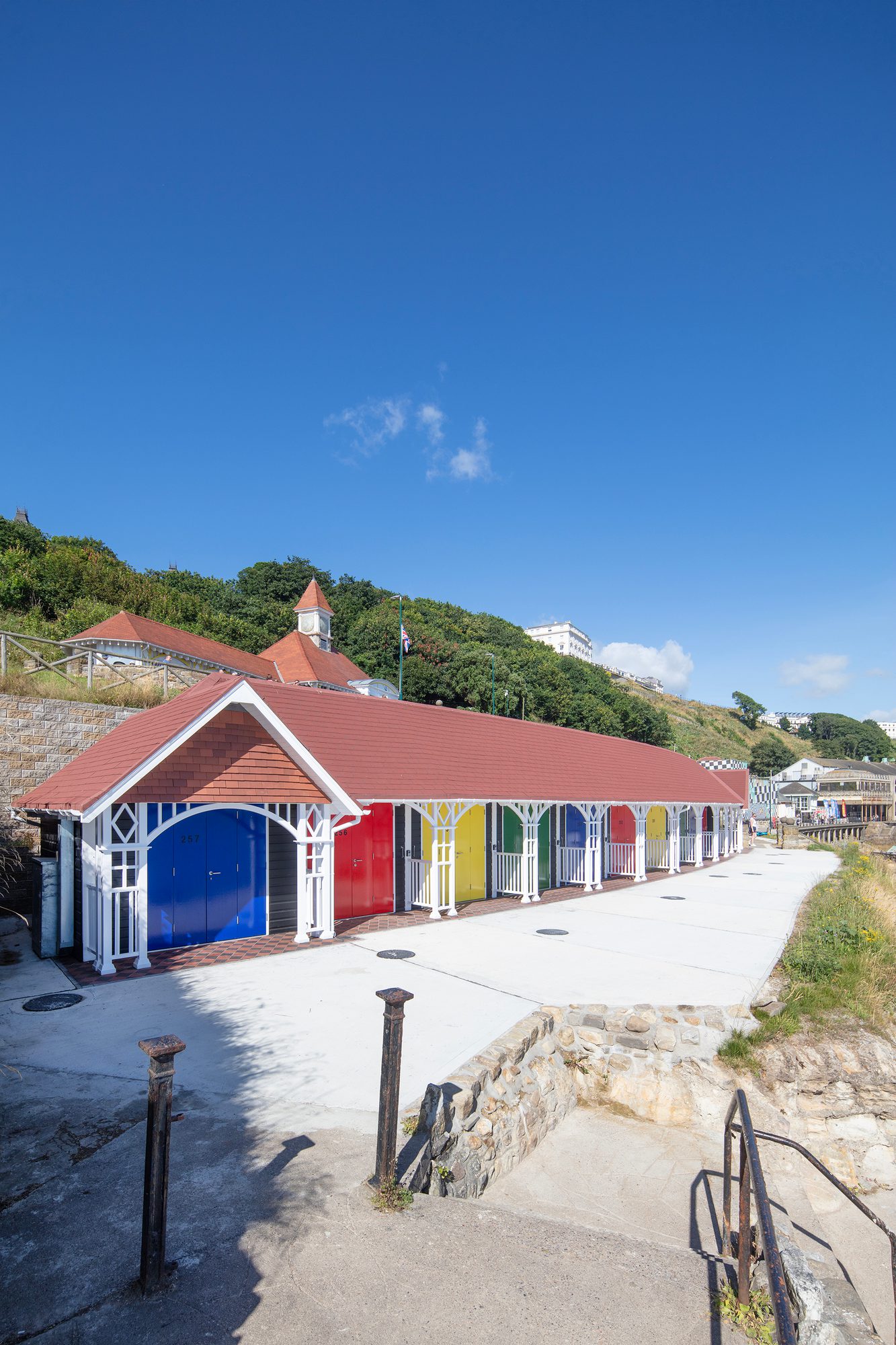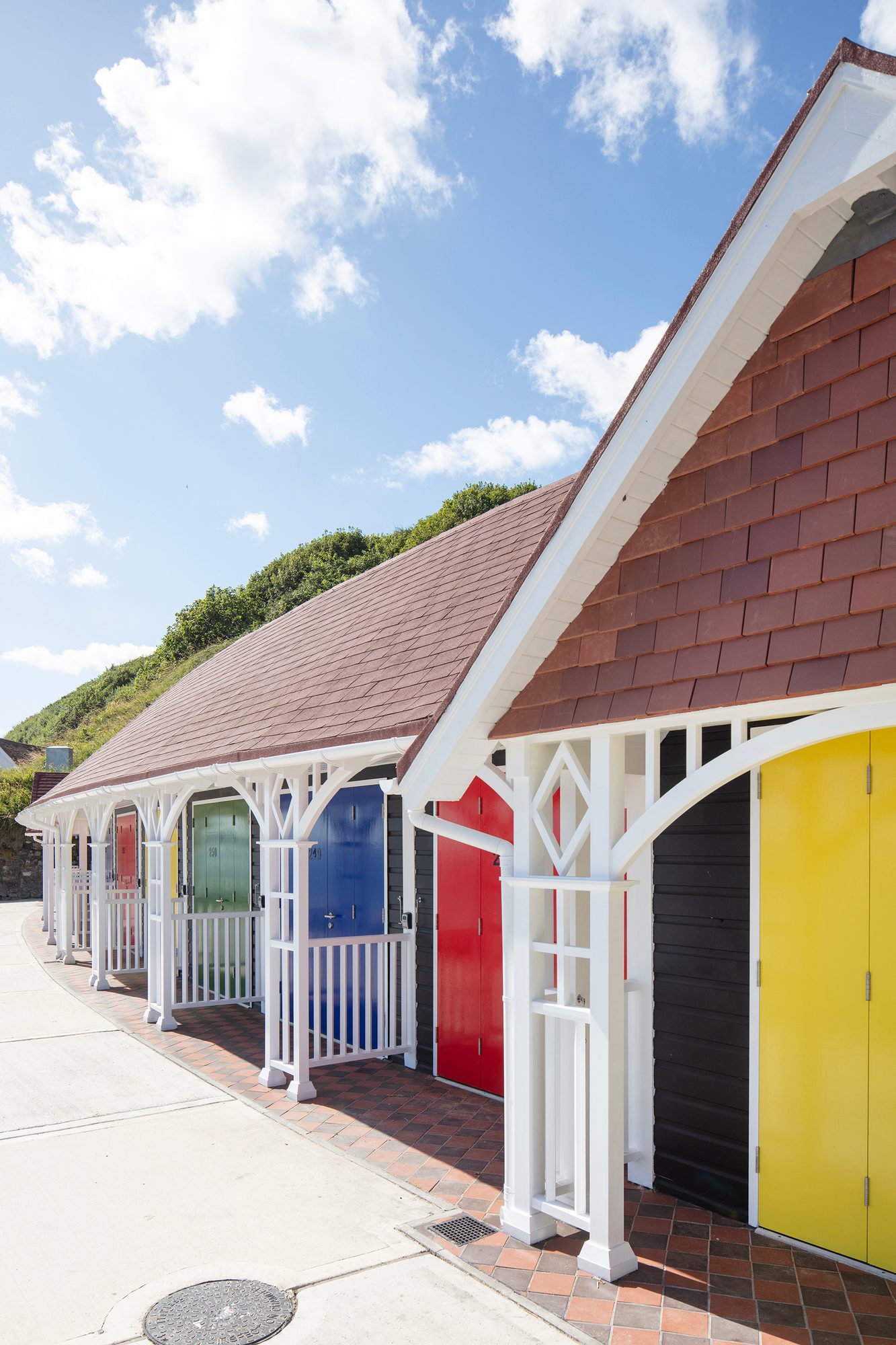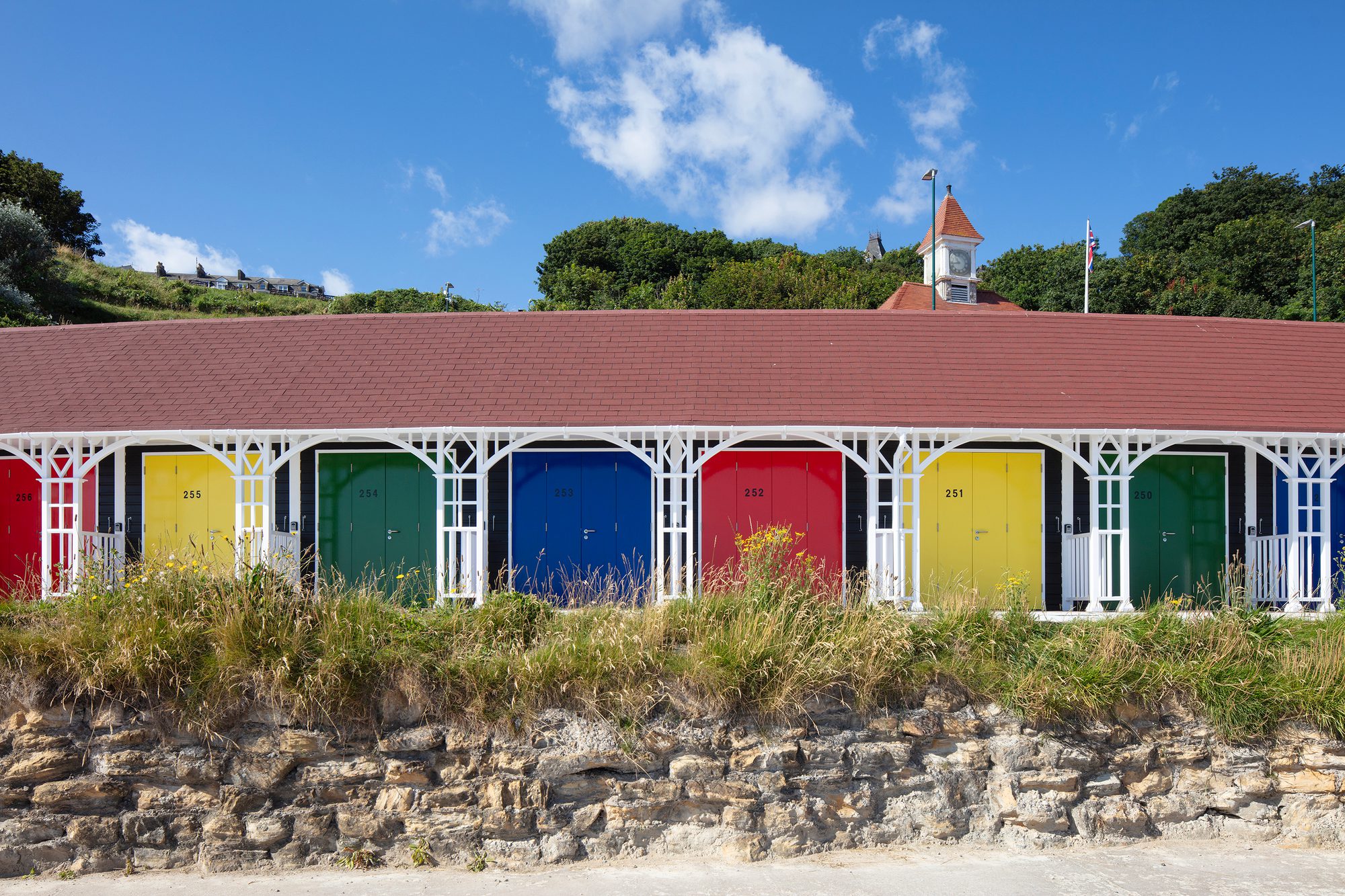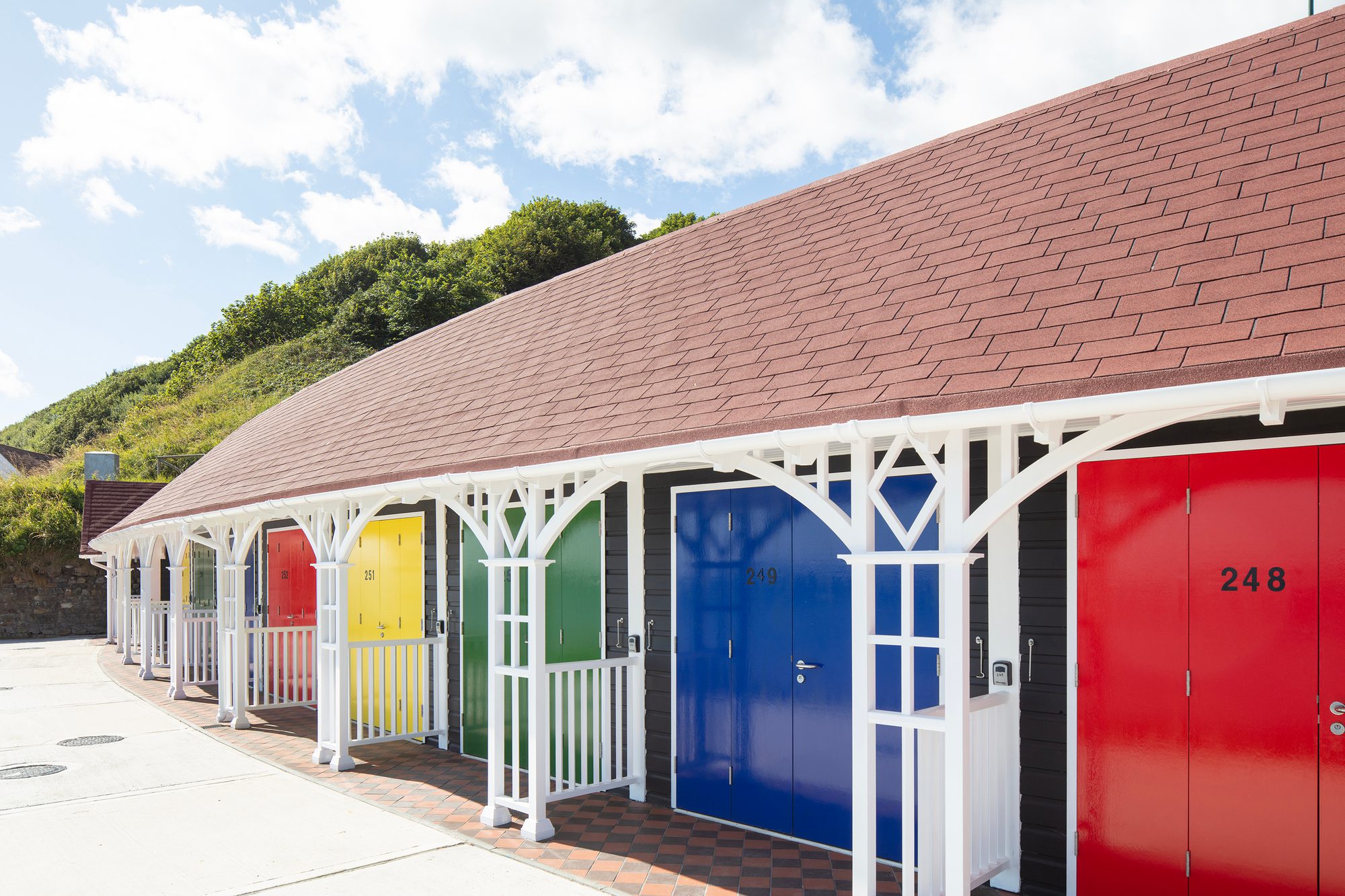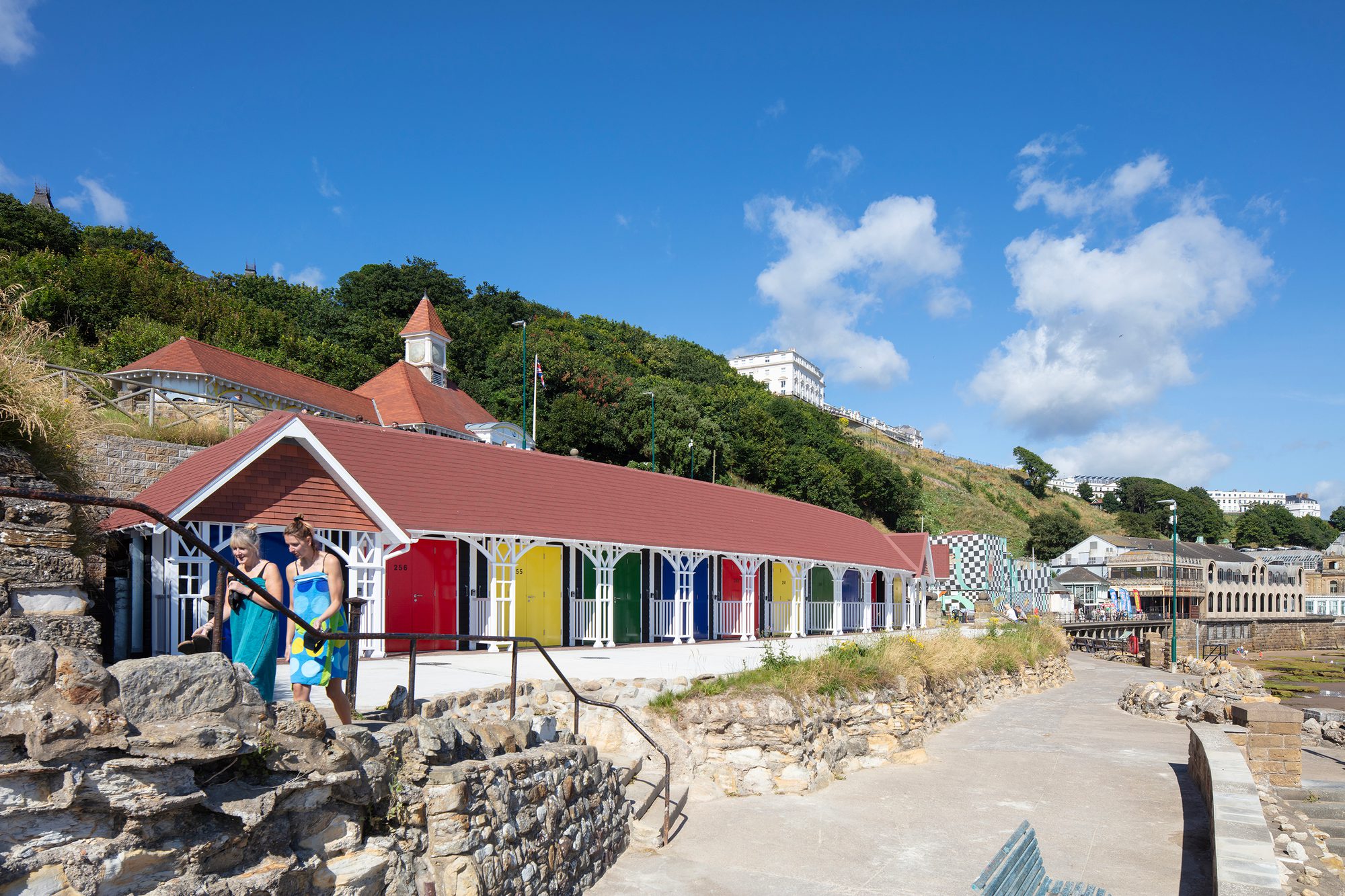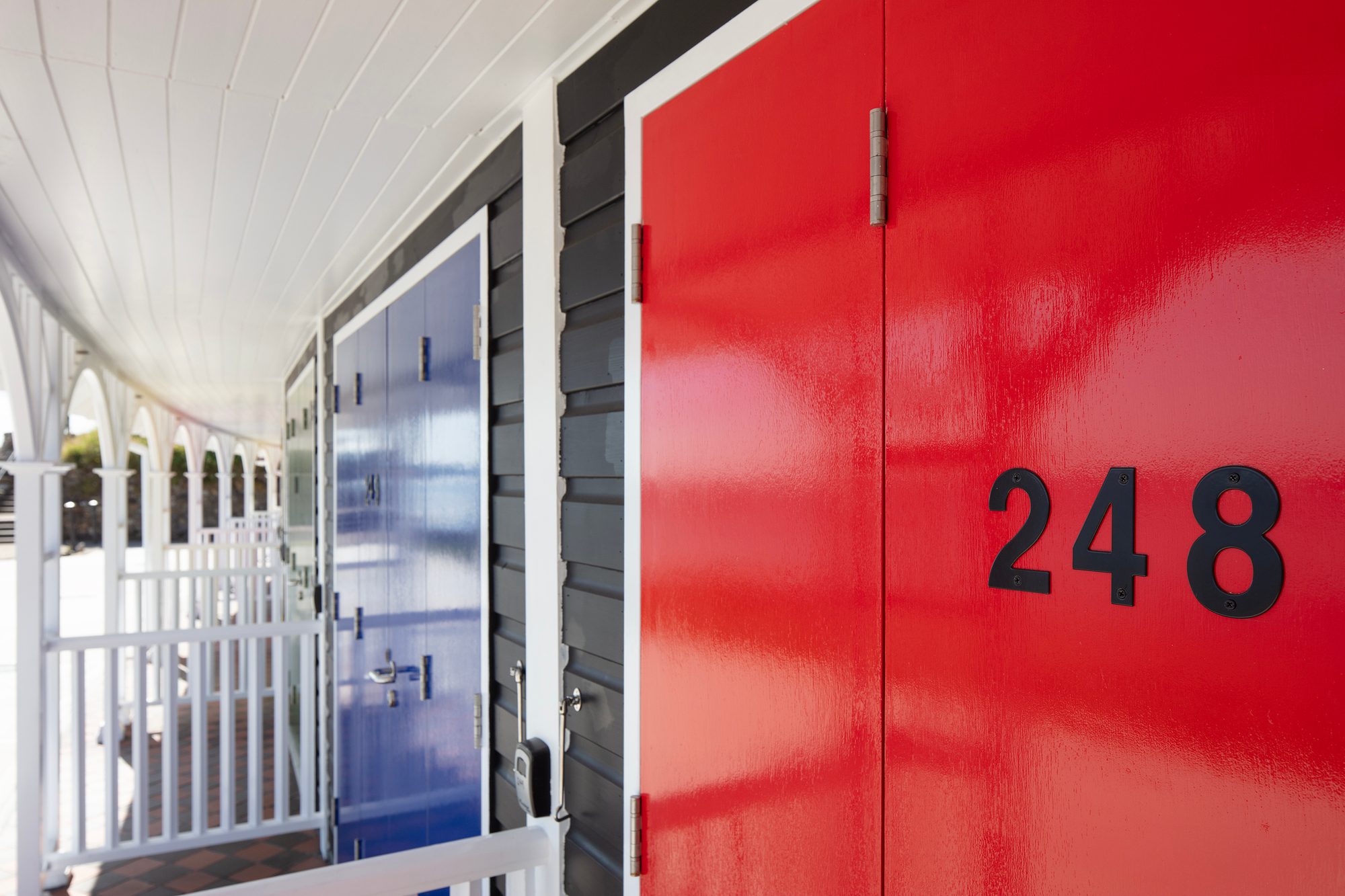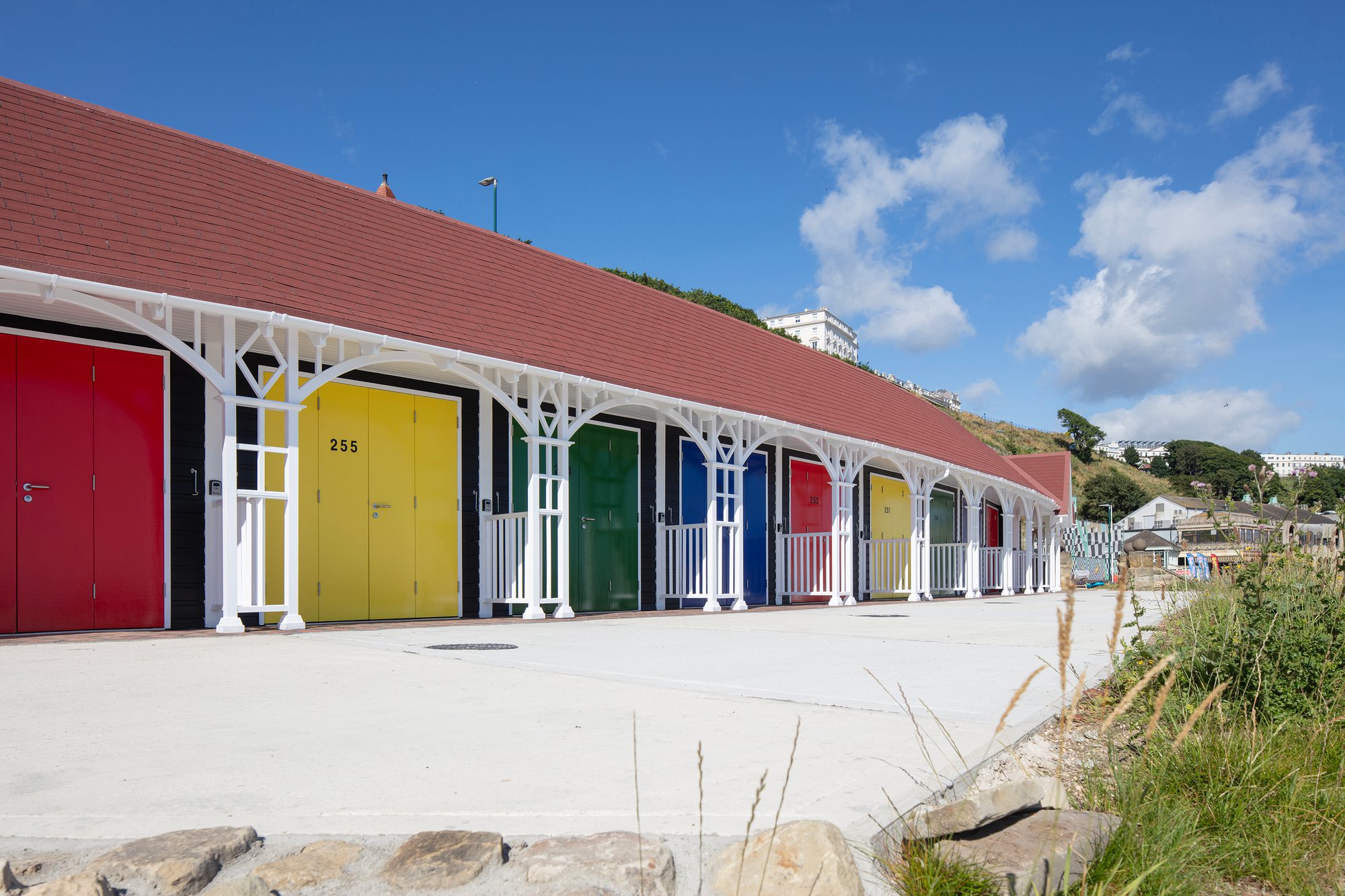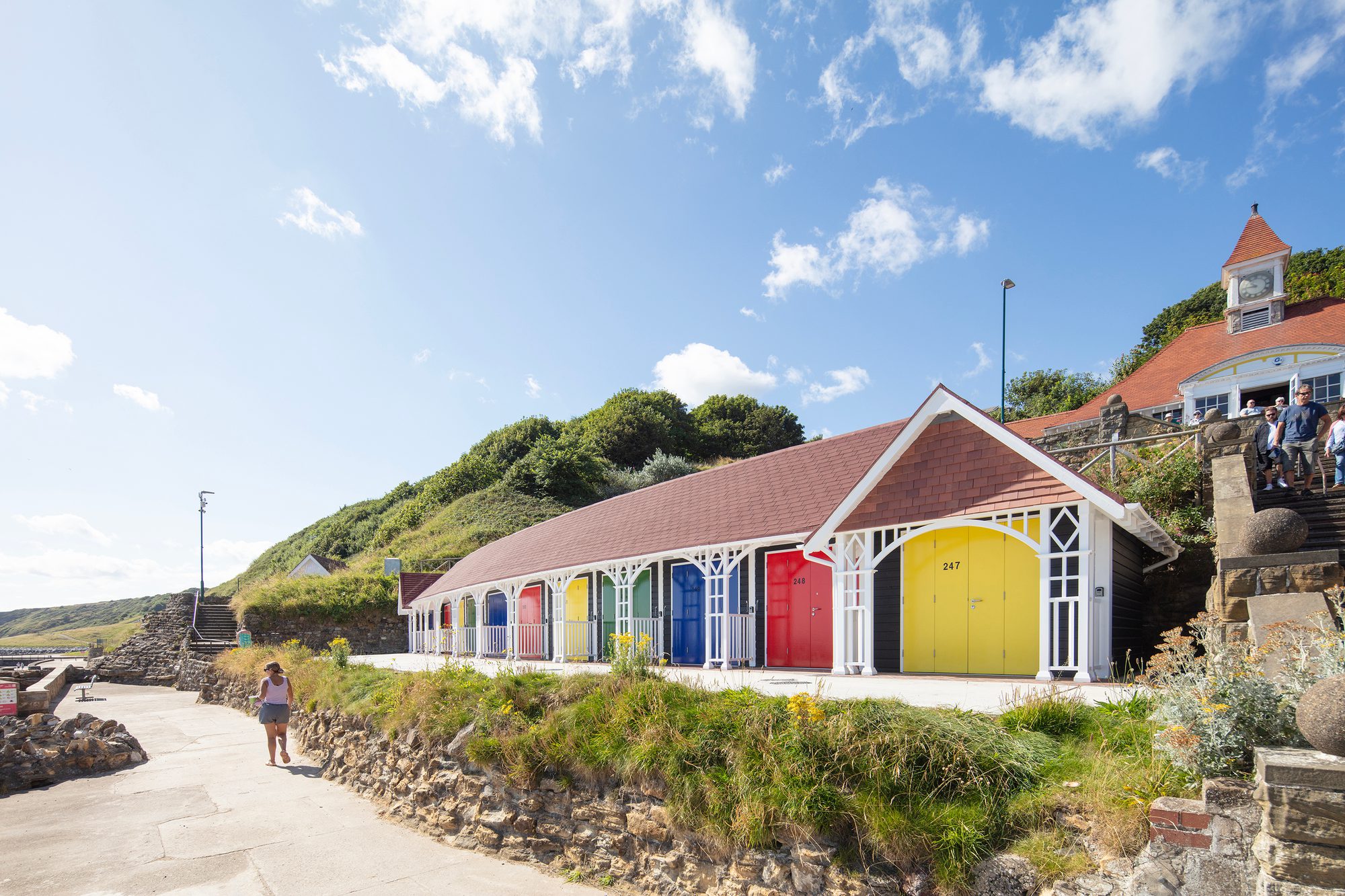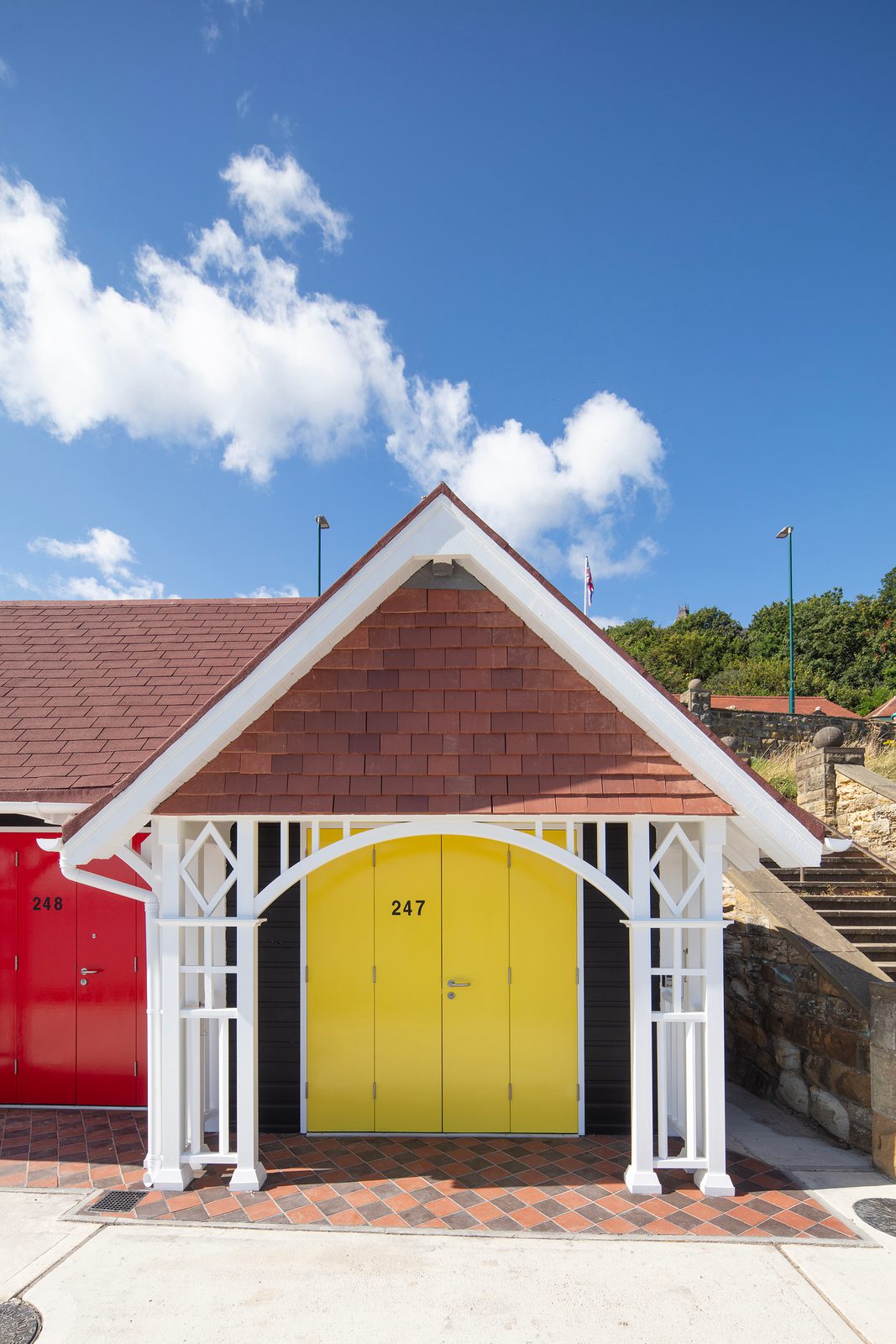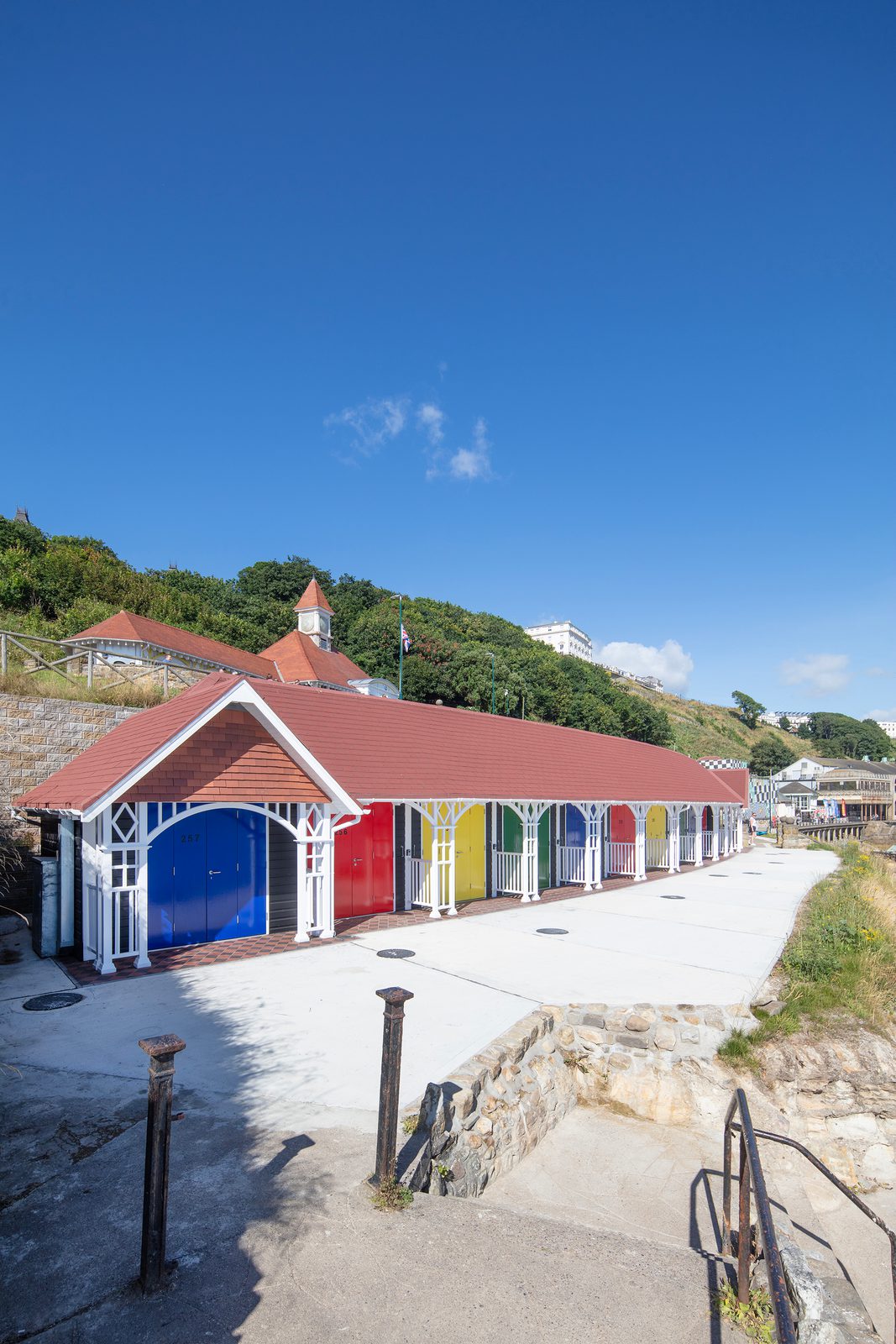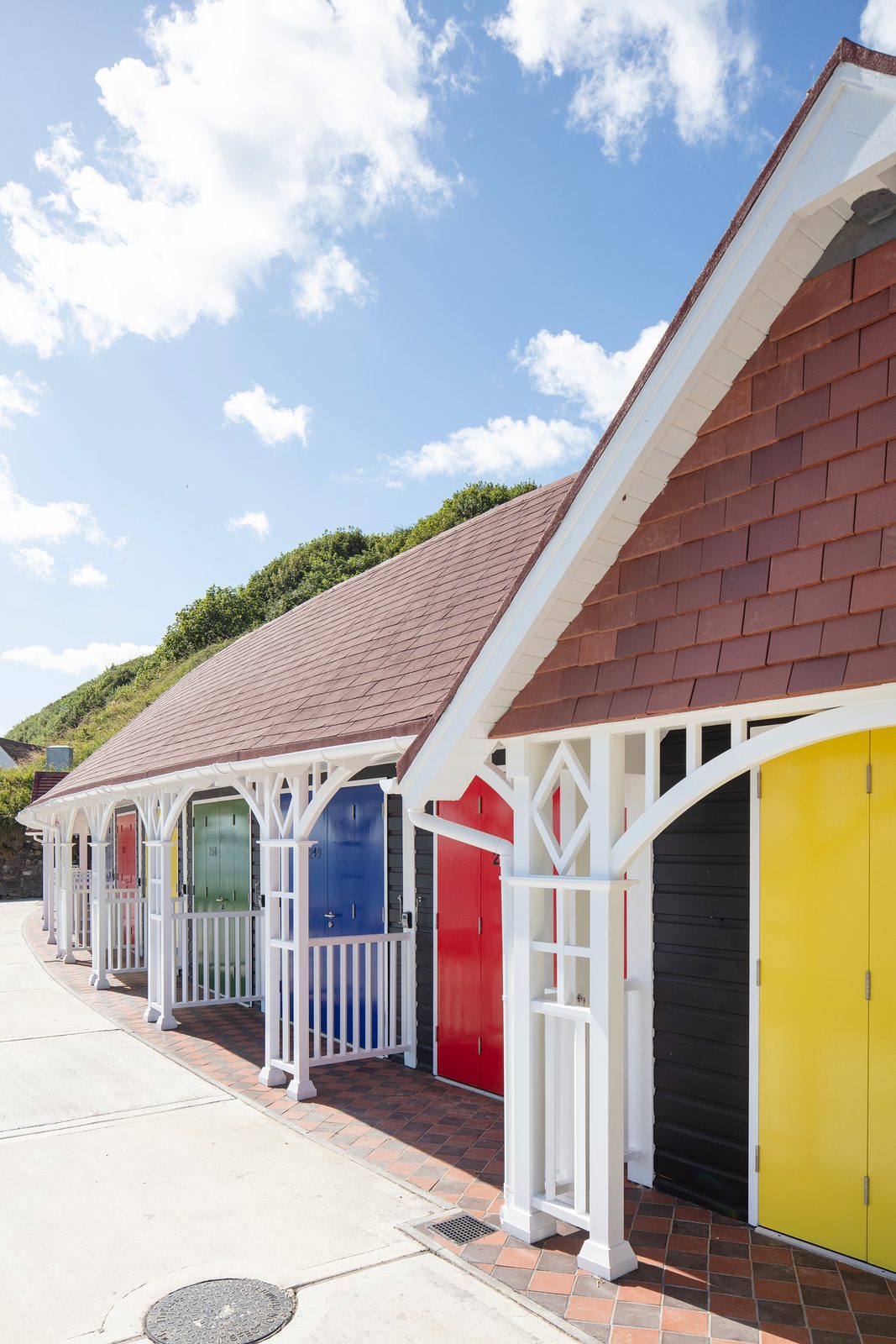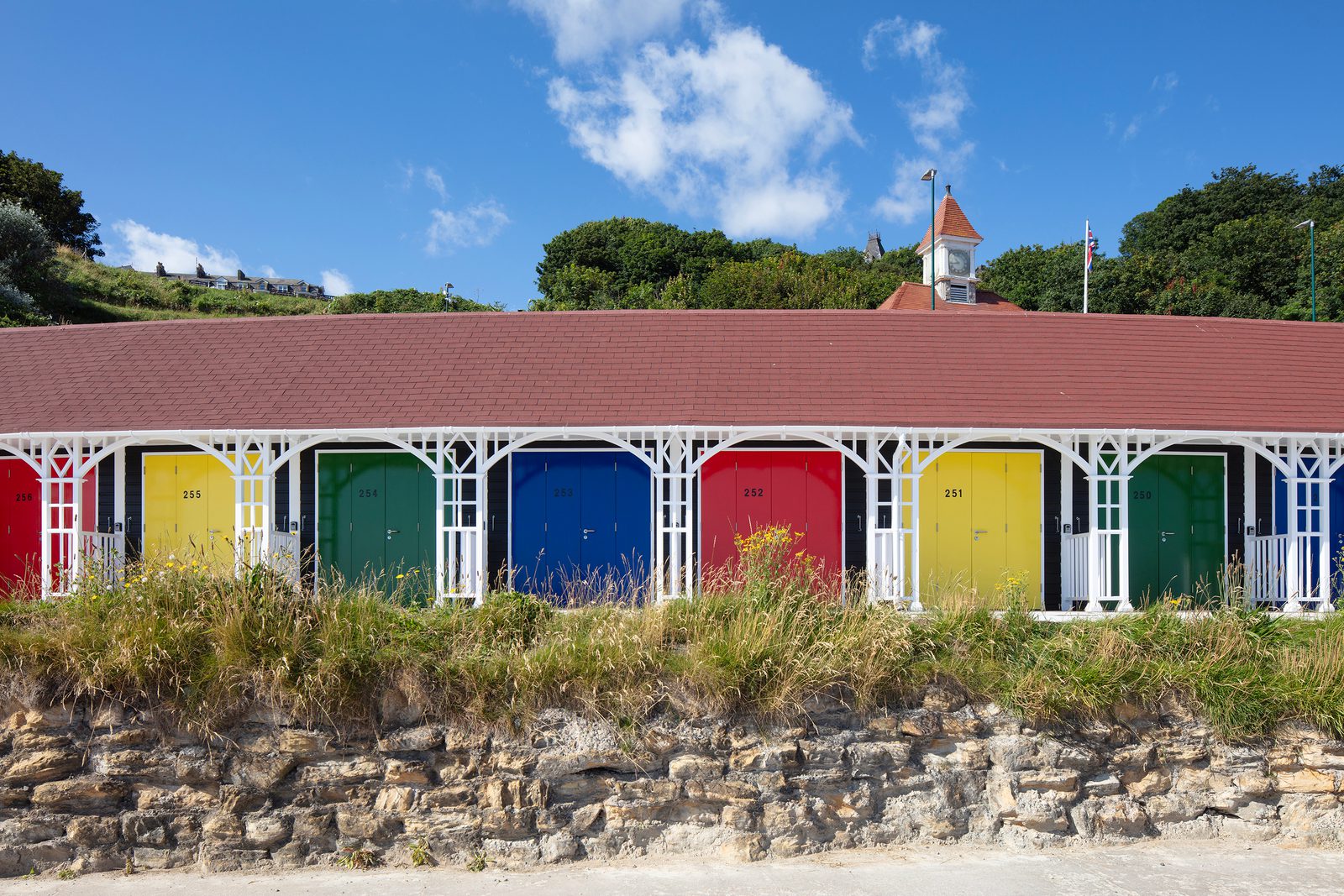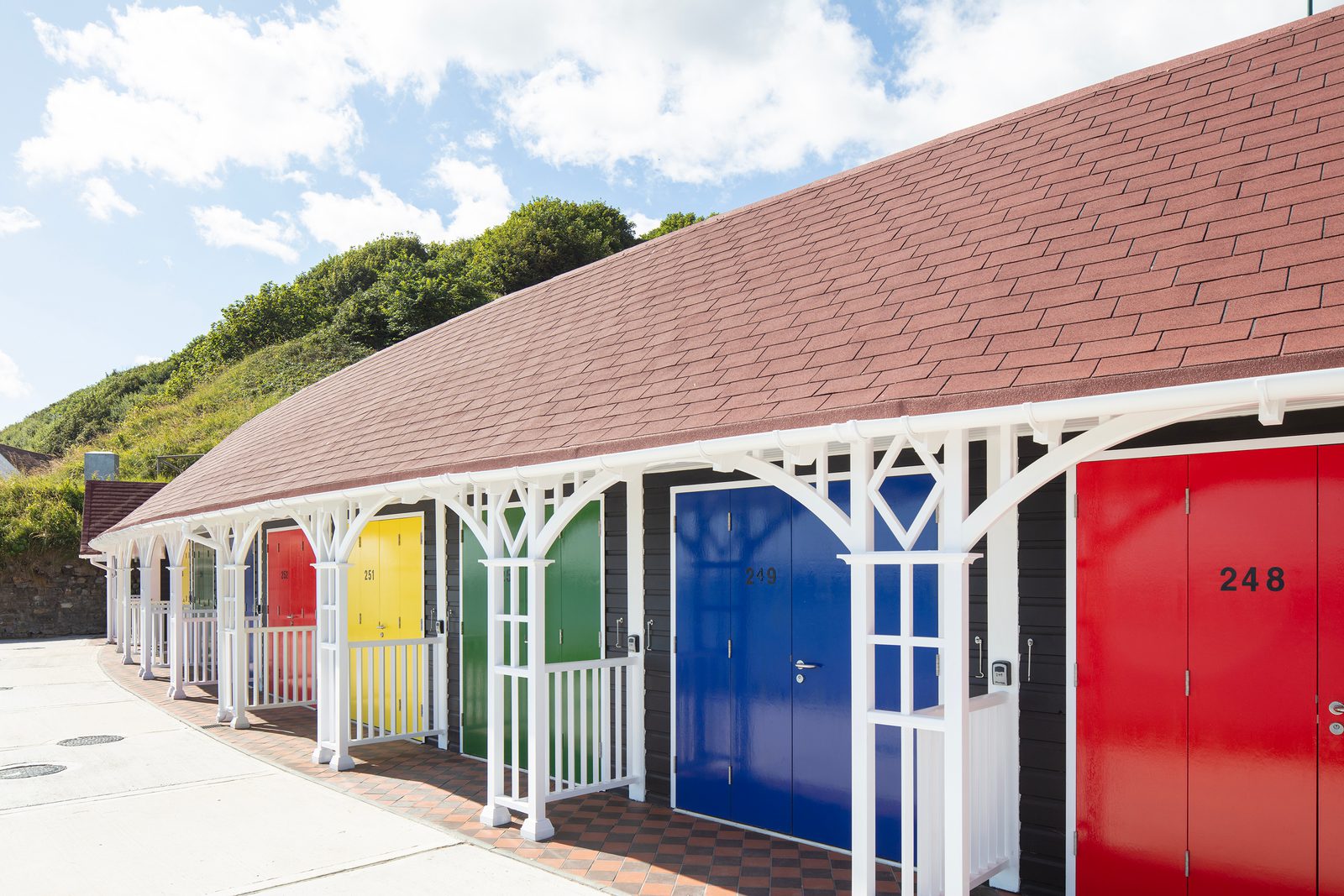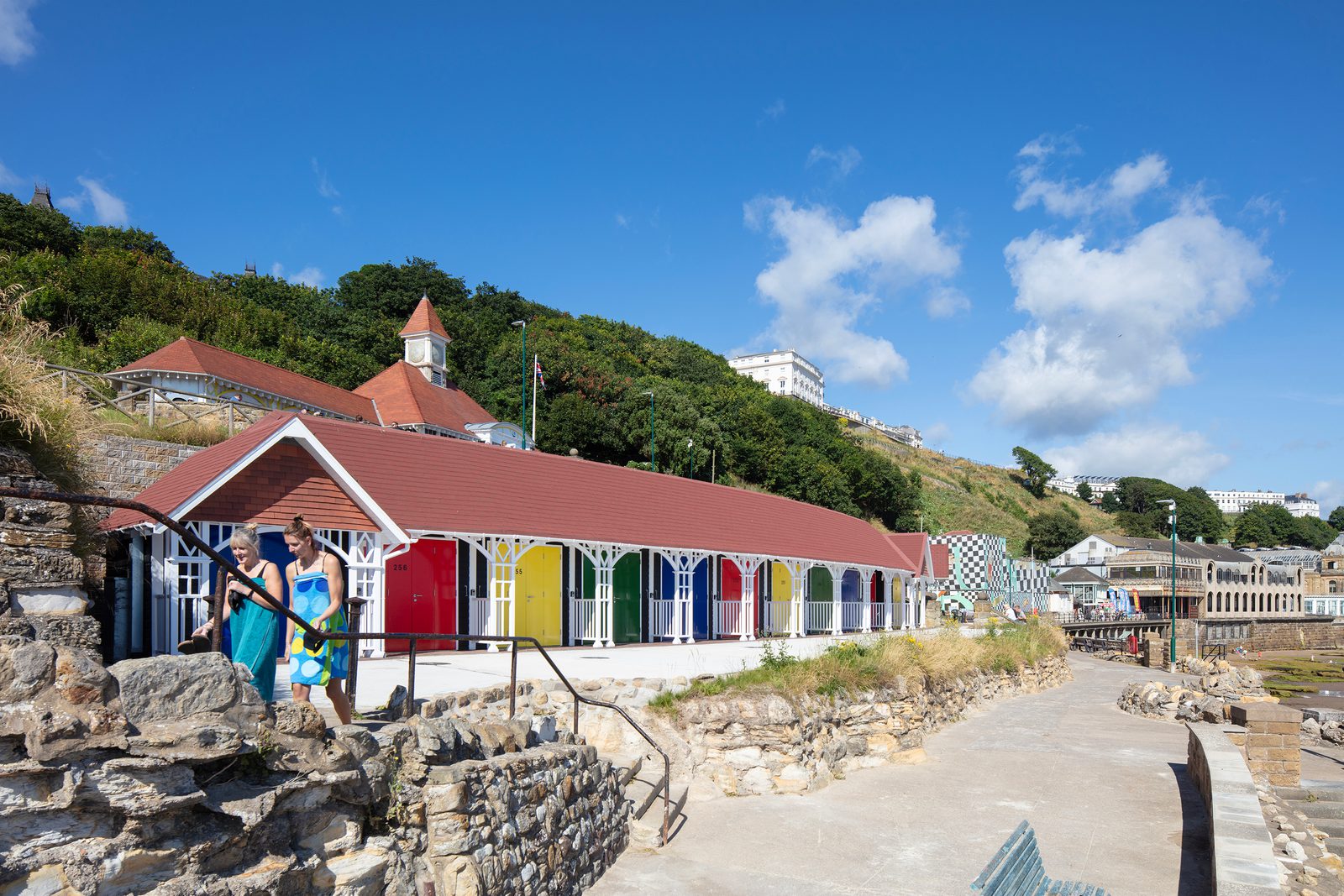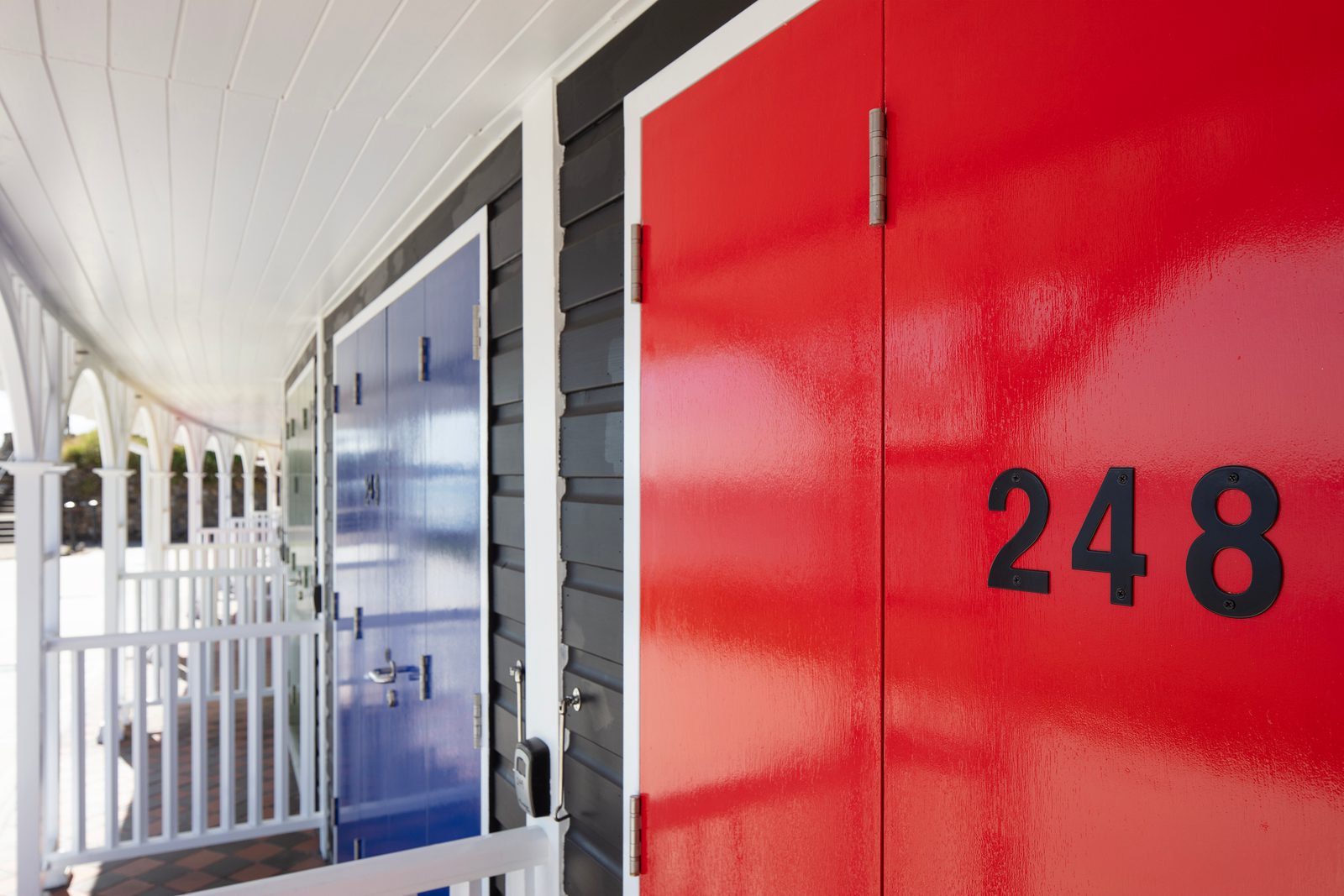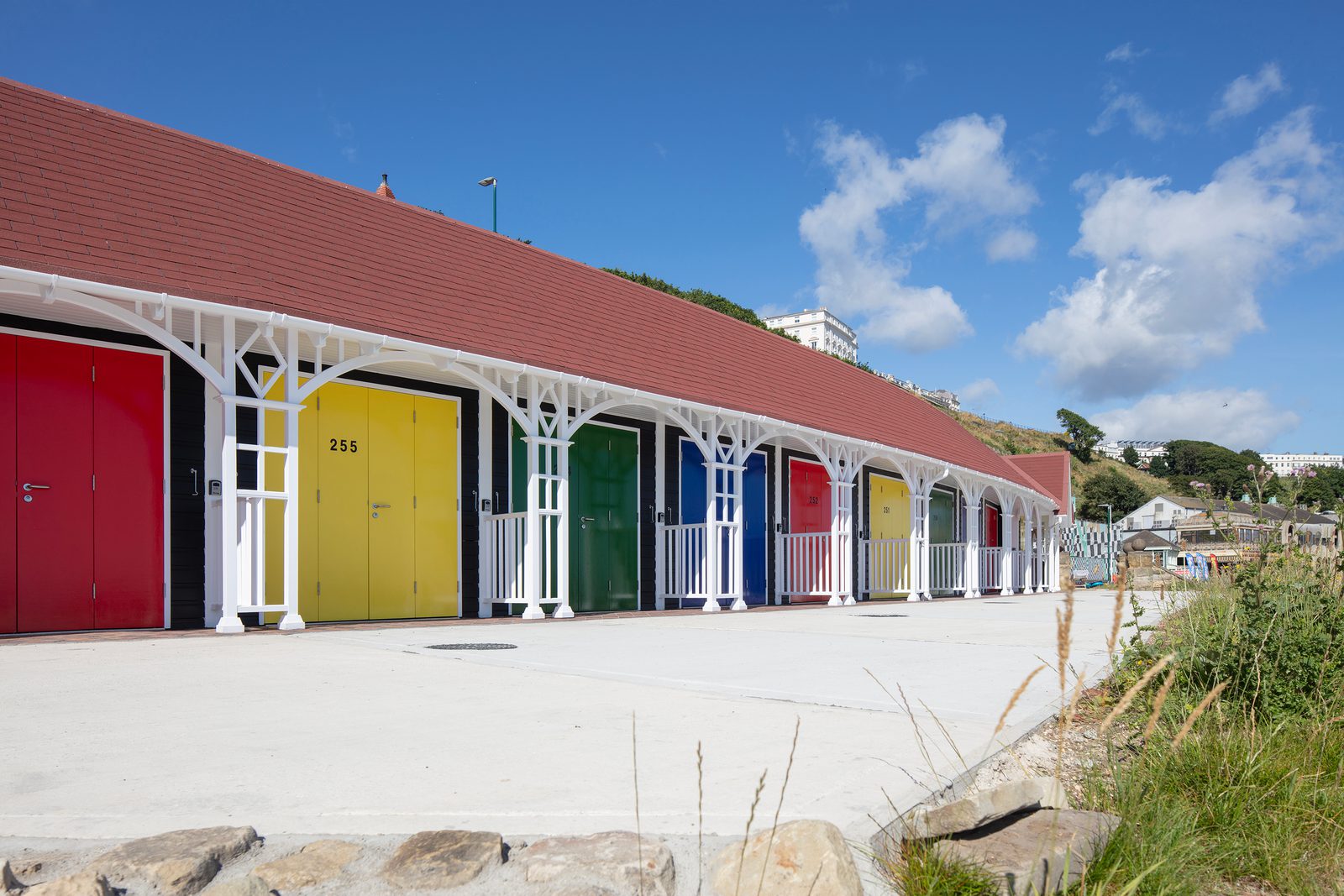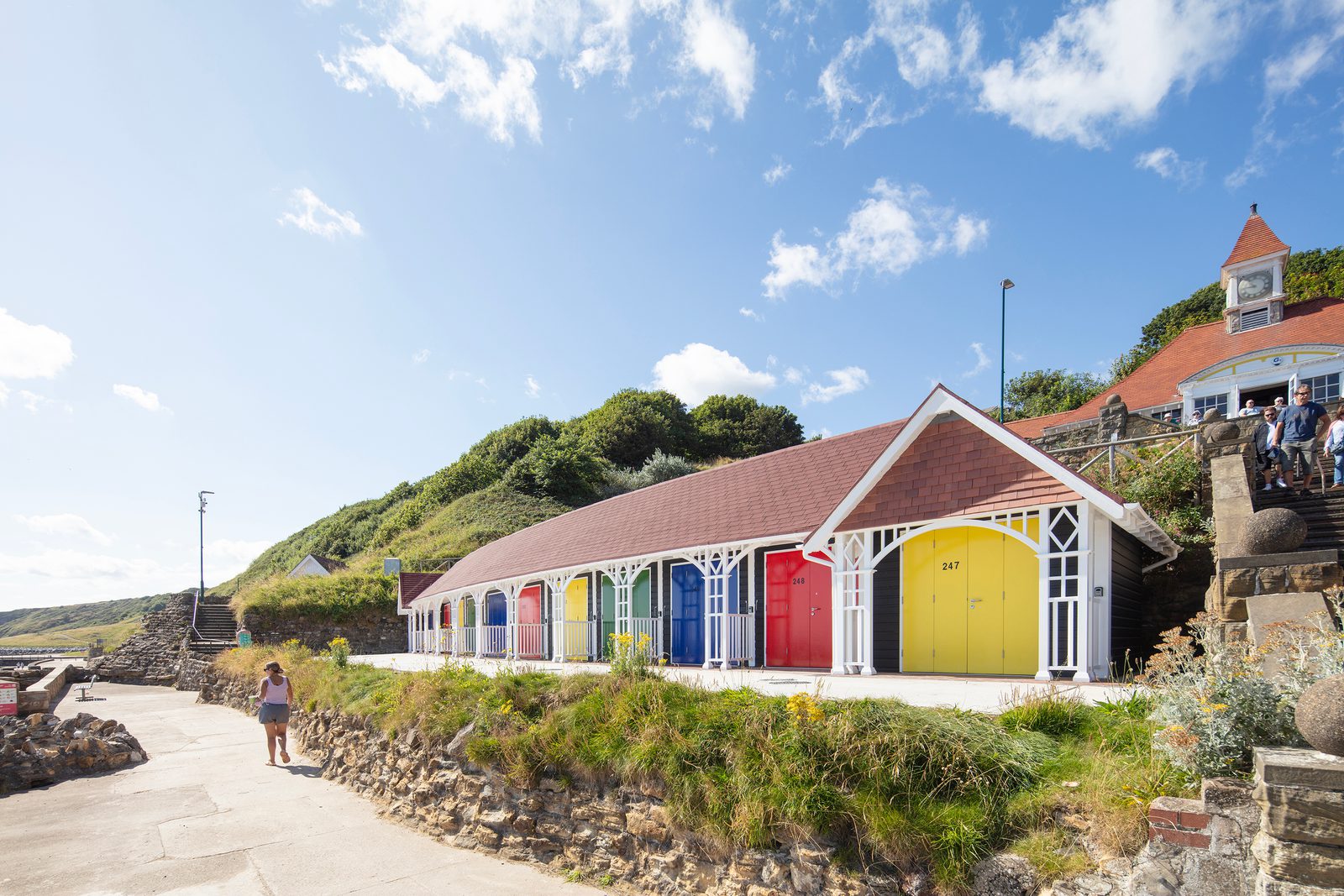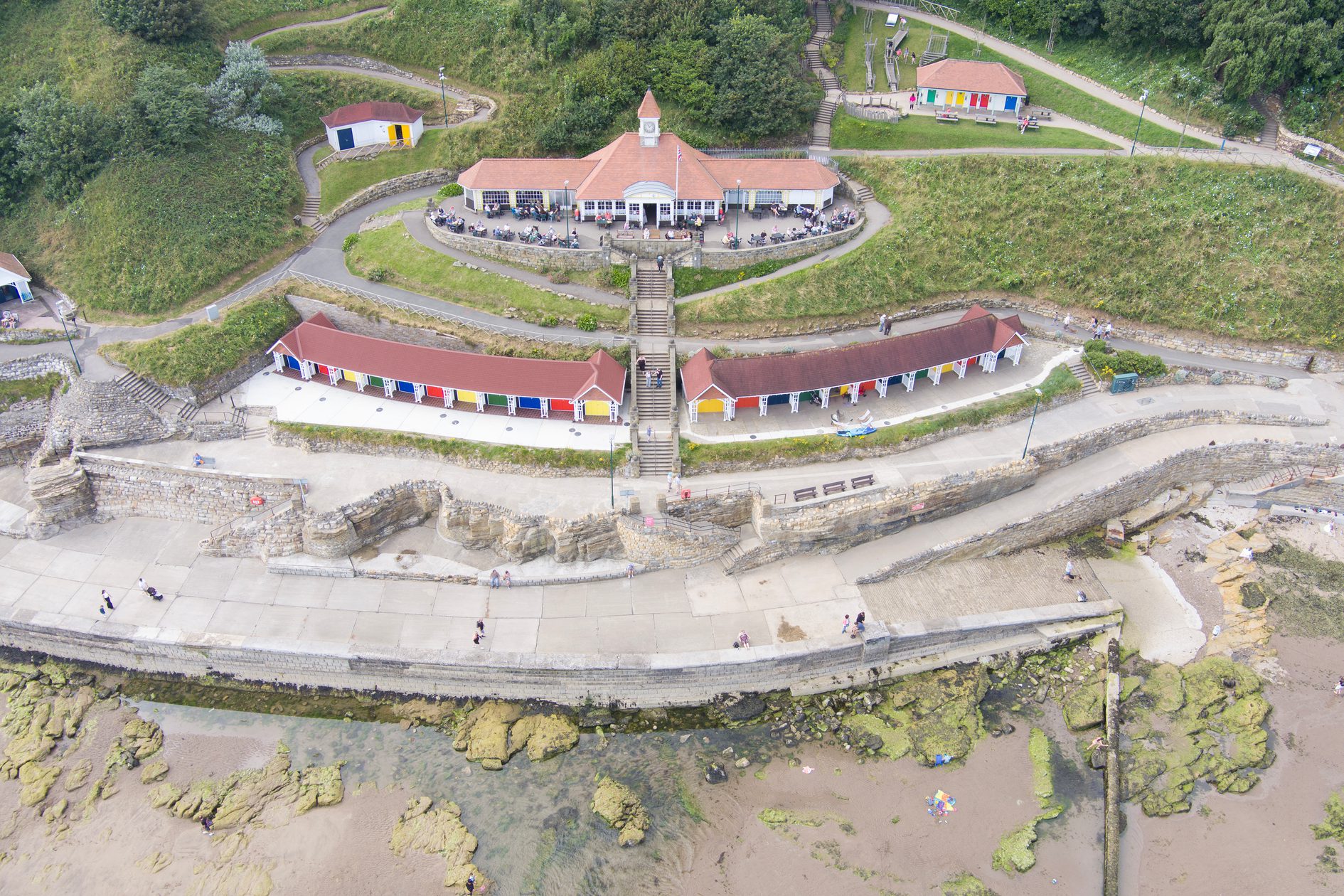South Cliff Chalets
Scarborough, UK
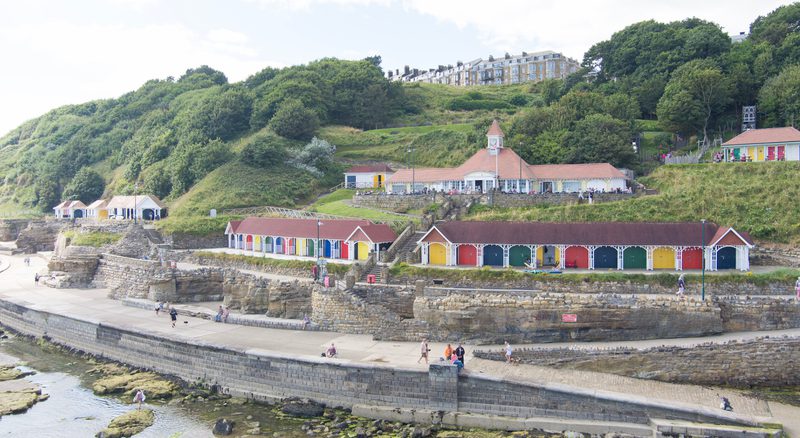
project overview
Preserving the history of our coastline by restoring the Grade II Listed chalets
As part of North Yorkshire Council’s wider regeneration and conservation scheme, we were appointed to act as consultant building surveyors and Principal Designer for CDM on a project to rebuild the historic chalets at South Cliff. Working with a multidisciplinary team, our role included preparing and submitting the planning application for the rebuild alongside the design for the new chalets.
The chalets have formed an important part of Scarborough’s coastline in the South Bay since they were built but, in March 2018, a build-up of water pressure caused a retaining wall to collapse and cause irreparable damage to a number of the huts. A further collapse in November of the same year damaged additional chalets which unfortunately led to their demolition in December 2019 due to safety concerns.
LASER SCANNING
Creating 3D models of the historic chalets to inform our design
PROJECT BACKGROUND
An exploration into the South Cliff chalets which form an integral part of British history
Although sea-bathing began to gain popularity as early as 1730, the arrival of the railway to Scarborough in 1845 saw an increase in day-trippers visiting for a swim in the sea.
This influx in tourists, who all needed to get changed into their swimwear, meant there was a requirement for changing facilities to help preserve modesty.
The wealthy would use horse-drawn bathing machines, but these were cumbersome and, by the 1900s had been replaced by lighter-weight changing tents.
As the popularity of the beach continued to grow, a more permanent solution was required, and the beach chalets were built as a result.
Permanent beach huts first appeared in Britain around 1910 in Bournemouth, but the idea of creating a series of units in a permanent row was pioneered in Scarborough at its North Bay in 1911, followed on closely by these examples at South Cliff in 1911-12.
The original 1912 plans for the chalets were used to inform the design for the rebuild, ensuring the restored chalets would be historically accurate.
A LIKE-FOR-LIKE BRIEF
Achieving a design to replicate the original chalets
PROJECT CHALLENGES
Navigating the complex site limitations
The chalets sit below the popular Clock Café, close to a spa complex, where there is also very limited and difficult vehicular access to the site, which is only available along the promenade.
This is further perpetuated by weight restrictions owing to weaknesses in the structure of the seafront and by access is only being available across the beach at low tide meaning the site presented some complex challenges with access.
To ensure materials could be successfully delivered to site and that minimal disruption was maintained throughout, we worked in close collaboration with the café and spa facilities, the project team and stakeholders such as landlords and renters of the existing huts.
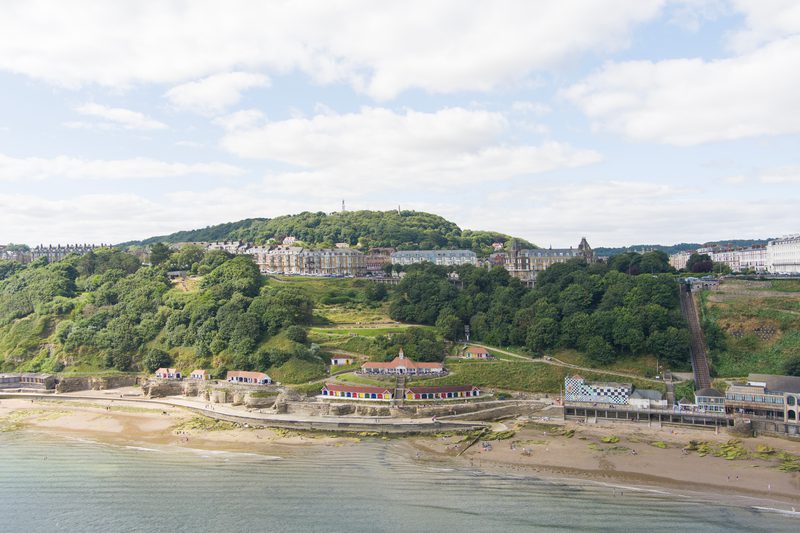
Team
Meet the team behind the project
Allan Hunt
Managing Director, Building Consultancy
Lee McDougall
Director, Building Consultancy
Stephen Bottom
Director, Building Consultancy
Georgina Reid
Architectural Technologist, Building Consultancy
Neil Dixon
Associate Director, Building Consultancy
Contact
Interested in
learning more?
Learn more about 'South Cliff Chalets' and other projects by reaching out to one of our team
Get in touchRelated Projects

Glossop Town and Market Hall
To support the councils’ goals, we are providing geomatics consultancy, principal designer and design services for the conversion of the Town Hall, surrounding municipal buildings and the Market Hall.

The George Hotel
Our sensitive approach to preserving the heritage of one of Huddersfield’s most historically and culturally important buildings; bringing it back to life with essential fabric repairs.

Network Rail Site Surveys
As part of a larger scheme, our geomatic consultancy team was appointed by Network Rail to carry out a range of specialist services.
